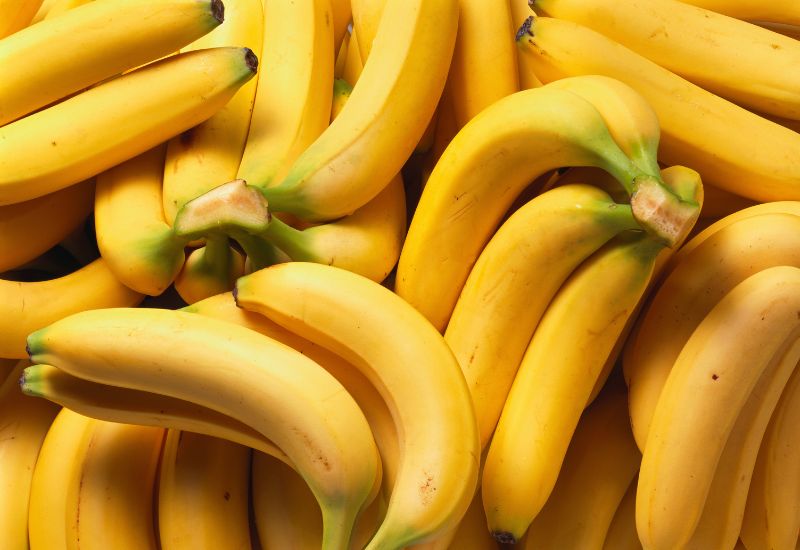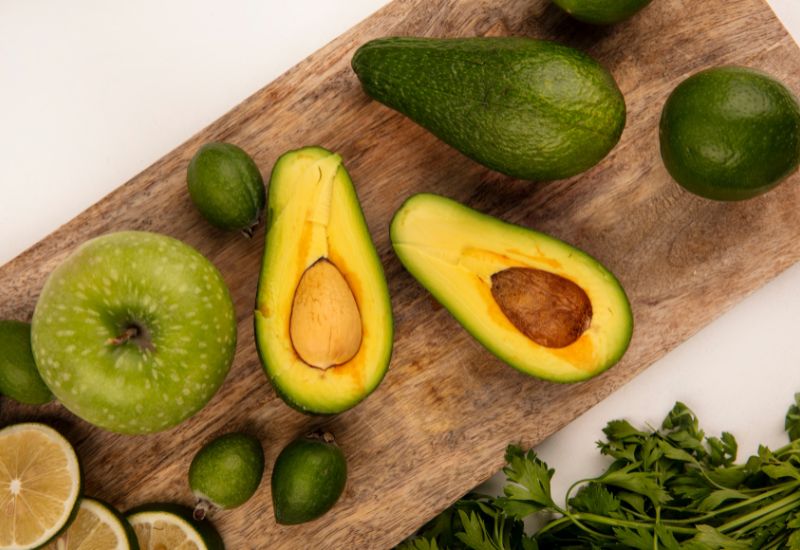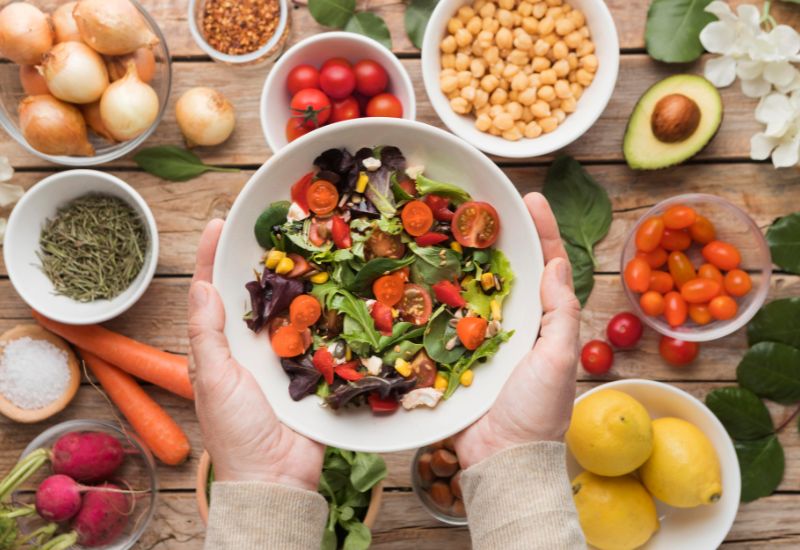Fruits are an essential part of a healthy diet, offering vital vitamins, minerals, and dietary fiber. However, not all fruits are low in calories as many might assume. In fact, certain fruits contain high levels of calories, making them excellent choices for individuals seeking to gain weight, enhance energy intake, or support high-intensity physical activity. This article explores some of the most calorie-dense fruits, their nutritional profiles, and how to incorporate high-calorie fruits wisely into your diet.
1. Top 5 High-Calorie Fruits
1.1 Banana – The Calorie King of Fruits
Bananas are among the most widely consumed fruits globally and are also one of the highest in calories. A medium-sized banana (approximately 120–150g with peel) contains around 90–120 calories, significantly more than low-calorie fruits like watermelon or strawberries. The calorie content mainly comes from carbohydrates, especially natural sugars like glucose, fructose, and sucrose.
Due to their quick energy release, bananas are a popular pre- or post-workout snack for athletes. However, for those following a weight loss regimen, consuming too many ripe bananas may unintentionally lead to excess calorie intake.

Bananas are a high-calorie fruit that supply a significant energy boost.
1.2 Avocado – Rich in Calories and Healthy Fats
Avocados are a standout when it comes to high-calorie fruits. A medium avocado (about 200g) contains over 200 calories, which is two to three times more than most other fruits. What sets avocado apart is its high content of monounsaturated fats — heart-healthy fats that help lower bad cholesterol.
Its dense caloric and fat content makes avocado an ideal food for those aiming to gain weight or maintain stable energy throughout the day. Still, portion control is essential to prevent excessive calorie consumption.

A medium-sized avocado (about 200g) provides around 300–350 calories.
1.3 Durian – A Tropical Energy Booster
Often referred to as the “king of fruits,” durian is known for its strong aroma and creamy texture. It is also notably high in calories, with 100g of durian containing about 132 calories — far more than apples (52 cal/100g) or oranges (47 cal/100g). These calories come from a mix of carbohydrates, fats, and a small amount of protein.
Due to its intense flavor and calorie density, durian may not be suitable for those trying to lose weight or who are sensitive to strong smells. However, for quick energy replenishment, it can be eaten fresh or used in smoothies and desserts.
1.4 Raisins – Calorie-Dense Dried Fruit
Raisins are a prime example of how the drying process can significantly increase a fruit’s calorie content. While 100g of fresh grapes provides only 69 calories, the same amount of raisins contains approximately 299 calories. This is due to the removal of water during drying, which concentrates the sugars and energy.
Raisins are convenient, portable, and ideal for snacking, especially for individuals needing a compact energy source.
1.5 Coconut – Natural Calories from Flesh and Water
Coconut is unique in that its various components — flesh, water, and oil — all contribute to its high calorie count. For instance, 100g of mature coconut meat contains about 393 calories, while young coconut flesh offers around 61 calories per 100g. Coconut water is lighter, providing only 19 calories per 100ml. Most of the calories in coconut flesh come from saturated fats, which offer lasting satiety and slow-release energy.
2. Important Considerations When Consuming High-Calorie Fruits
To reap the benefits of these calorie-rich fruits without unintended weight gain, it’s important to follow a few key guidelines:
– Portion Control: Although these fruits are natural and nutritious, consuming them in large quantities can lead to excessive energy intake. Combining them with low-calorie foods like leafy greens can help maintain caloric balance.
– Timing Matters: High-calorie fruits are best consumed before physical activity or as part of a midday snack. Eating them close to bedtime may lead to elevated blood sugar or indigestion. In particular, durian, with its warming properties, is not ideal for late-night consumption.
– Individual Health Status: People with diabetes or those monitoring blood sugar should limit fruits high in natural sugars like durian or raisins. Individuals prone to bloating or indigestion may also want to moderate their intake of rich fruits like avocado or durian.
– Dietary Variety: While these high-calorie fruits are beneficial, relying solely on them can cause nutritional imbalance. A diverse fruit intake ensures you get a broad range of nutrients, including those from lower-calorie fruits.

Diversify your diet to avoid missing out on essential nutrients from lower-calorie fruits.
Fruits like bananas, avocados, durians, raisins, and coconuts are not only energy-rich but also packed with essential nutrients. Depending on your health goals, such as weight gain or increased energy demands, these fruits can serve as valuable additions to your diet. Conversely, if you are aiming to manage or reduce your weight, paying attention to portion sizes is crucial.
Understanding the nutritional characteristics of each fruit helps you make informed dietary choices. Consider incorporating some of these high-calorie fruits into your meals and experience the benefits they bring. If you’re unsure how to balance them effectively in your daily intake, don’t hesitate to consult a nutrition specialist.








